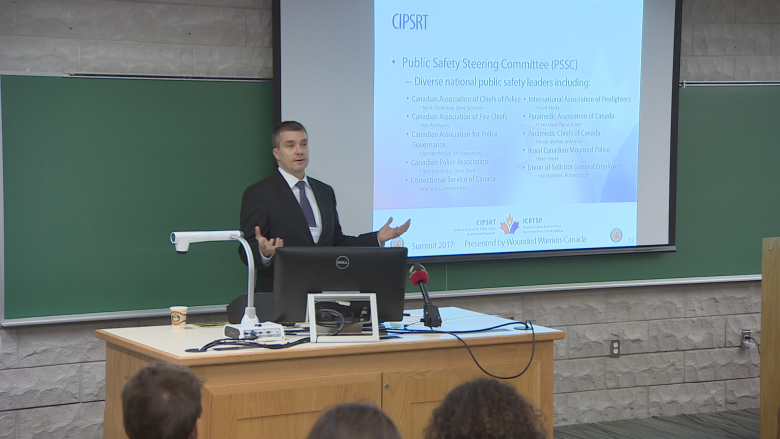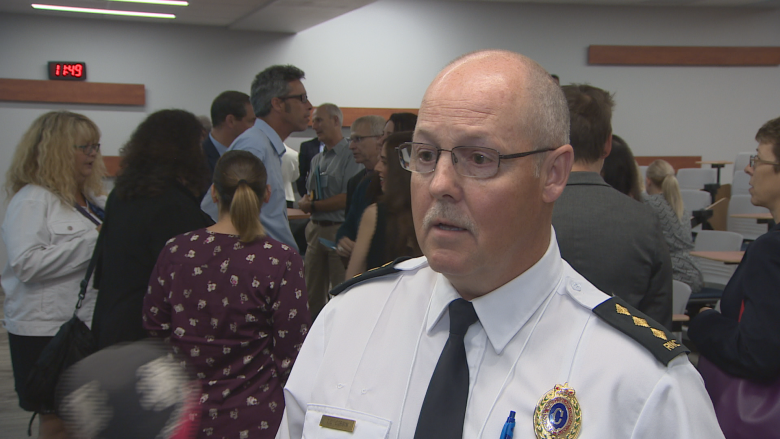'Monumental task': National effort launched to tackle mental health of public safety workers
Working in the public safety sector across Canada is not easy — and is often traumatic.
A new research group launched in St. John's Tuesday to work on a national strategy to support the mental health of the country's police, paramedics, firefighters, corrections officers and other frontline workers.
"The goal is to increase the education, reduce stigma, build a resilience in responders so we can reduce the number that are impacted by this and certainly bring them earlier stage treatment," said Steve Palmer, executive director of the Canadian Institute for Public Safety Research and Treatment (CIPSRT).
The organization officially launched Tuesday at Memorial University in St. John's during the first of a three-day summit presented by Wounded Warriors Canada.
The goal was to come up with concrete ideas for improving the mental and physical health of public safety workers.
"The idea is to get the research going, get the momentum going, get people working together, and find a way to do best by our public safety population," said Rose Ricciardelli, CIPSRT's associate director of corrections.
Scientific Director Nicholas Carleton said CIPSRT brings together academic and public safety leaders to create a new national strategy on mental health.
He said it's a monumenatl task with a massive team.
"These different public safety organizations — and the personnel that they serve — are facing, in many cases, very similar challenges with respect to their mental health and their mental health concerns," he said.
"Because they are facing similar challenges, it makes sense that they should work together."
During the summit, Carleton presented one of the group's efforts to immediately help workers: an online tool set to launch next month to screen for post-traumatic stress disorder, depression and other issues.
Public safety workers can then compare their results to those of other workers and, if needed, take the information to a professional for help.
'You take that home to your family'
Royal Newfoundland Constabulary Insp. Terry Corbin said the tool will be very useful, since officers are concerned about mental health and stress injuries from the job.
"As police officers, we start our career and we go about our work every day," he said.
"We're out helping people and we don't sometimes focus on the fact [and think] 'Are there any impacts in this process for us?' And you don't see that, and you take that home to your family and you're dealing with those things."
He said realizing the impacts of the traumas and stress experienced on the job often comes later, after you've been living it for years.
Ricciardelli noted those impacts can go well beyond the frontline workers.
"In Newfoundland, everyone is related to, knows someone … who is part of one of these [public safety] systems," she said.
"Everyone is very close. So, in essence, we're in a province where this just about affects every person, because it's so small."




